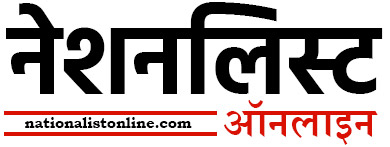NIDHI TAPARIA
Technology has plagued each and every dimension of our everyday routines. Travelling to and fro, shopping for any event whatsoever, or talking to a friend who is miles away; everything is literally just a tap away. And with the rise of smartphones and applications, the ease of doing such activities has increased manifold. Our Prime Minister himself a very tech-savvy individual, is making every possible effort to make use of the ever-improving informational technology to revolutionize and modernize instruments of policy and governance. His Digital India drive is the government’s flagship programme under which it is taking a slew of measures in this direction. The National eHealth Authority (NeHA) is one such initiative. After having issued a concept note to the stakeholders earlier this year, the government is all set to launch the scheme and with that a Digital Health revolution in India.
The Authority will be a regulatory body that will be set up by an Act in the Parliament. It will be tasked with the process of digitization of patient records in the country and also with the responsibility of formulating policies and strategies that would contribute towards building of the National eHealth Policy / Strategy and the implementation of the same. It will be the Nodal authority for the development of an Integrated Health Information System inclusive of both telemedicine and Health in India. Because privacy will be a major concern in such an integrated system, NeHA shall also look into the confidentiality and privacy aspects of the Electronic Health Records (EHRs).
NeHA will have a chairperson, three full time members and a member secretary. The Chairperson shall be an eminent person hailing from the sector of Medicine, Public Health or Judiciary. The four other members will be belonging to the fields of medicine, public health, IT standards, health economics and management. A standing consultative committee that shall be chaired by the chairperson of NeHa, will be the advisory body to the authority composed of representatives from the union ministry of health, directorate general of health services, NASSCOM, IRDA, WHO, MCI and consumer rights activists among others. The committee as suggested by the concept note shall meet every six months and function as a two-way forum with NeHA and the experts’ community, enabling dialogue and soliciting popular participation.

The National eHealth Authority aims at standardization, storage and exchange of electronic health records of patients. In simple words, it means that the authority will work towards building a database that will store information about patients and their ailments; virtually all kind of data that shall be useful. For instance, all the reports of the tests you undergo once you visit a doctor. Such a centralized pool of information will allow you to not to undergo fresh tests if you switch doctors, greatly reducing your expenditure on medical bills, something we all hate but cannot ignore. Apart from reducing bills, such a step will also expedite diagnosis as well as treatment and that’s exactly why calling it a revolution is not exaggeration.
A 2008 report by the National Knowledge Commission (NKC) of India had recommended the central government to set up a National Health Information Authority for precisely the promotion of eHealth in the country. In the 12th Five Year Plan (2012-17), it was suggested to set up a nationwide network for the large scale adoption of Electronic Health Records. Consequently, a high level expert group was constituted by the Planning Commission. It is now with the coming up of the Modi Government and an efficient Union Health and Family Welfare Ministry under the leadership of Sh. J. P. Nadda, that such a repository has been taken into serious consideration.
India spends more than 4 per cent of its GDP on the Health sector, the government contributes a quarter of which. It is a well known fact that a healthy population is instrumental in the development of a nation. With its rich demographic dividend, the importance of a robust healthcare system increase greatly. Initiatives like NeHA in the otherwise problem ridden healthcare sector in India can surely help in refining India’s human development indicators.
(The author is associated with St. Xavier’s College, Jaipur)
